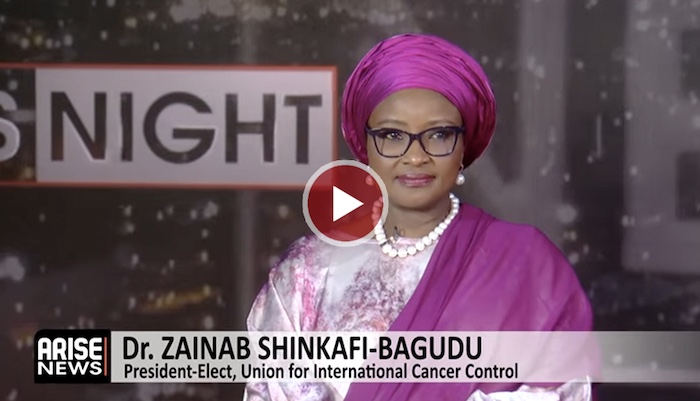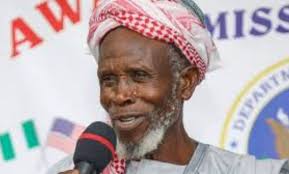

President-elect of the Union for International Cancer Control (UICC), Dr. Zainab Shinkafi-Bagudu, has emphasised that cancer can be prevented through early awareness, regular screening, and improved access to treatment, while urging government investment in local drug production to make care more affordable for Nigerians.
Speaking on ARISE News on Sunday, Dr. Bagudu said prevention remains “the low-hanging fruit” in the fight against cancer, stressing that public education and community engagement are vital.
“Yes, cancer can be prevented — that’s the low-hanging fruit — by awareness and knowing what to look out for. We need to talk more to our people, our community gatekeepers, and religious leaders, not even just the doctors. These are people with influence who can spread the right information,” she said.
Dr. Bagudu noted that some cancers, such as cervical and liver cancer, are preventable through vaccination, and called for more advocacy to ensure Nigerians understand the importance of screening and early detection.
On breast cancer, she explained that young women should begin monthly self-breast examinations from puberty, while women aged 40 and above should have mammograms and ultrasound screenings.
“Every girl, once she hits puberty, should be aware of how her breasts are growing and how they look, so that if there’s anything abnormal, she knows. Women from 40 should have mammograms — that’s an x-ray that can detect cancer before you can feel a lump,” she said.
Dr. Bagudu added that men should also be encouraged to check themselves, noting that 1% of breast cancer cases occur in men.
She also dispelled myths about the disease, explaining that breastfeeding offers strong protection against breast cancer.
“The more a woman is exposed to oestrogen, the more protection she has. Women who breastfeed have less chance of having breast cancer, so we advise breastfeeding for at least two years,” she said.
On the high cost of screening and treatment, Dr. Bagudu acknowledged that mammograms cost around ₦50,000 in private centres, which is unaffordable for many. She however noted that primary health centres and general hospitals offer clinical breast examinations at lower costs, while civil society groups and NGOs continue to bridge the gap.
Addressing access to cancer drugs, she revealed that Nigeria currently does not produce chemotherapy drugs locally, but efforts are underway through the federal government’s health initiatives to encourage local pharmaceutical production.
“Local production of chemotherapeutic agents is not happening yet, but in the near future, with presidential initiatives and improved partnerships, we expect progress. Some pharmaceutical companies had exited, but with the economy reviving, we’re seeing signs they may return,” she stated.
Dr. Bagudu also discussed her foundation’s initiative to support persons living with disabilities (PWDs) by offering them a 50% discount on cancer screening services.
“Persons living with disabilities have a special plight. They don’t get access to most of the things that others can. This initiative makes them feel respected and included, and it should serve as a signal for other organisations and government agencies to create support schemes for this group,” she explained.
She concluded by reiterating that education, inclusion, and awareness remain the most effective tools in reducing Nigeria’s cancer burden.
“We can prevent cancer, and we can save more lives — but it starts with awareness, screening, and access,” Dr. Bagudu said.
Boluwatife Enome



